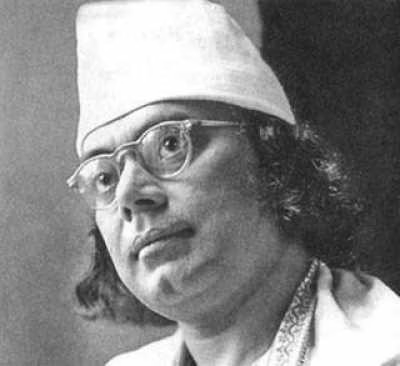Today marks the 49th death anniversary of Kazi Nazrul Islam, Bangladesh’s national poet, revered for his passionate verses and defiance against oppression.
Kazi Nazrul Islam was born in Churulia, Burdwan (then under British India), on Jyaishtha 11, 1306 in the Bengali calendar. Known as a poet, lyricist, composer, and thinker, he remains celebrated for his revolutionary work Bidrohi (“The Rebel”) and a vast collection of songs—approximately 2,400—now known collectively as Nazrul Giti. He often created both the lyrics and their musical compositions.
A symbol of resistance, Nazrul’s creations inspired countless individuals during the country’s Liberation War and movements for justice and democracy.
He left formal education to join the British Indian Army and was stationed in Karachi. After his military service, Nazrul moved to Kolkata, where he launched the periodical Dhumketu (The Comet), which sharply criticised colonial rule. One of his poems, Anandamayeer Agomone, led to his imprisonment.
Despite being jailed, Nazrul continued writing, producing Rajbandir Jabanbandi. His hunger strike in prison ultimately secured his release, although several of his works faced bans throughout the 1920s.
Nazrul’s writing extended beyond protest—he also explored love, spirituality, and humanism. His literary innovations included a bold poetic style enriched with Persian and Arabic vocabulary. In the 1930s, HMV employed him as a lyricist, followed by a role at All India Radio.
Struck by a rare illness in 1942, Nazrul lost his ability to speak and remember. He was brought to independent Bangladesh in 1972 and honoured with citizenship, the Ekushey Padak, and a D.Litt from Dhaka University. He passed away on Bhadra 12, 1383, and was laid to rest beside Dhaka University’s central mosque.


